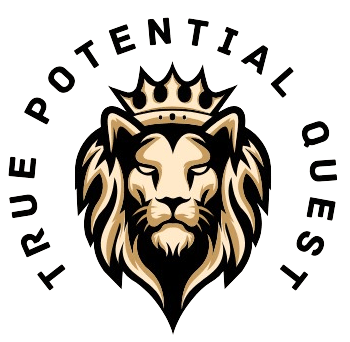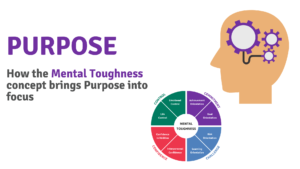Table of Contents
Introduction: The Foundation of Resilience
In the intricate landscape of personal development, resilience emerges as the stalwart pillar upon which success is built. It acts as the guiding light in the darkest of moments, the unwavering force that propels us forward despite the storms we face. But what does resilience truly entail, and how can we nurture it within ourselves? Let us embark on an illuminating expedition through the labyrinth of personal growth, delving into the essence of resilience and unraveling the mysteries of its cultivation.

Resilience, at its core, is the profound inner strength that enables us to withstand the trials and tribulations of life, emerging stronger and more resilient in the aftermath. It is not merely the absence of adversity, but rather the ability to confront challenges head-on, adapt to change, and thrive in the face of adversity. Resilience empowers us to transform setbacks into stepping stones, setbacks into opportunities, and obstacles into triumphs.
But how do we cultivate resilience within ourselves? The journey begins with self-awareness, as we delve deep into the recesses of our minds and hearts to understand our strengths, weaknesses, and coping mechanisms. Through introspection and reflection, we gain insight into our resilience quotient, identifying areas for growth and development.
Next, we must cultivate a growth mindset—a belief in our ability to learn, grow, and adapt to new circumstances. By embracing challenges as opportunities for growth and viewing setbacks as temporary setbacks, we foster a sense of resilience that enables us to persevere in the face of adversity.
Moreover, building resilience requires the cultivation of healthy coping mechanisms and self-care practices. Engaging in activities that nourish our bodies, minds, and spirits—such as exercise, meditation, and creative expression—helps us replenish our inner resources and build emotional resilience.
Check Out Mastering Goal Setting
Ultimately, resilience is not a destination but a journey—a journey of self-discovery, growth, and transformation. By embracing the challenges that life throws our way, cultivating a growth mindset, and nurturing our inner resources, we can unlock the secrets to personal growth and embark on a path of resilience and fulfillment. So, let us journey together through the intricacies of building inner strength, as we unlock the secrets to resilience and embark on a path of personal growth and fulfillment.
1. Understanding Inner Strength of Resilience

Inner strength is not just a trait; it’s a state of being—an unwavering foundation that empowers individuals to navigate life’s trials with courage, determination, and resilience. It encompasses qualities such as self-confidence, self-awareness, perseverance, and adaptability. Let’s delve deeper into what inner strength entails and explore how it can be nurtured and cultivated in our lives.
At its essence, inner strength is the unshakeable belief in oneself—the deep-rooted conviction that we possess the capacity to overcome adversity and achieve our goals. It’s the resilience to withstand life’s challenges without succumbing to despair or self-doubt. Inner strength is exemplified by individuals who face adversity head-on, drawing upon their inner resources to persevere in the face of seemingly insurmountable obstacles.
One example of inner strength is the story of Malala Yousafzai, the Pakistani activist who defied the Taliban’s efforts to silence her and became a global advocate for girls’ education. Despite facing assassination attempts and unimaginable hardships, Malala remained steadfast in her commitment to education and empowerment, demonstrating unwavering courage and resilience in the face of adversity.
Another example is the resilience displayed by Nelson Mandela during his 27 years of imprisonment. Despite being confined to a tiny cell for over two decades, Mandela emerged from captivity with his spirit unbroken, his resolve unwavering, and his commitment to justice stronger than ever. His remarkable inner strength not only sustained him during his darkest days but also inspired millions around the world to strive for equality and justice.
Ultimately, inner strength is not something we are born with—it’s something we develop and nurture over time through intentional practice and self-reflection. By embracing our inner power, believing in ourselves, and facing challenges with courage and resilience, we can cultivate the inner strength needed to thrive in the face of life’s inevitable storms.
Action Plan:
a. Self-Reflection: Take time to reflect on your past experiences and identify moments where you demonstrated inner strength. Recognize your resilience and the qualities that helped you overcome challenges.
b. Mindfulness Practice: Engage in mindfulness activities such as meditation or deep breathing exercises to cultivate self-awareness and inner peace.
c. Positive Affirmations: Practice affirming yourself with positive statements that reinforce your strengths and abilities.
2. Cultivating Resilience
Cultivating resilience is a transformative journey that involves developing the mental, emotional, and spiritual fortitude to navigate life’s challenges with grace, courage, and perseverance. Resilience is not a static trait but rather a dynamic process that can be cultivated and strengthened over time. Here’s a closer look at how resilience can be nurtured and cultivated in our lives:

Action Plan:
a. Embrace Challenges: Instead of shying away from challenges, embrace them as opportunities for growth and learning.
b. Build a Support Network: Surround yourself with supportive friends, family, and mentors who can provide encouragement and guidance during difficult times.
c. Practice Self-Care: Prioritize self-care activities such as exercise, healthy eating, and sufficient sleep to support your physical and emotional well-being.
3. Developing a Growth Mindset
Resilient individuals embrace a growth mindset, which is the belief that challenges are opportunities for growth and learning. They view setbacks as temporary setbacks and setbacks as opportunities for growth, rather than insurmountable obstacles. A growth mindset is the belief that abilities and intelligence can be developed through dedication and hard work. By adopting a growth mindset, you can overcome self-limiting beliefs and embrace challenges with resilience and determination.

Action Plan:
a. Challenge Negative Thoughts: Challenge negative thoughts and self-doubt by reframing them in a more positive and empowering light.
b. Set SMART Goals: Set specific, measurable, achievable, relevant, and time-bound goals that stretch your abilities and encourage growth.
c. Celebrate Progress: Celebrate your progress and accomplishments, no matter how small, to reinforce positive behaviors and build confidence.
4. Practicing Self-Compassion
In the labyrinth of life, amidst the chaos and clamor, there exists a sanctuary—a sanctuary of self-compassion that offers solace, understanding, and healing. This sanctuary, rooted in the profound wisdom of Louise Hay, beckons us to embrace ourselves with kindness, forgiveness, and unconditional love.

Self-compassion is the practice of treating yourself with kindness, understanding, and acceptance, especially during difficult times. By cultivating self-compassion, you can nurture resilience and inner strength, allowing you to navigate life’s challenges with grace and resilience.
Louise Hay, a renowned spiritual teacher and author, espoused the philosophy that self-compassion is the cornerstone of healing and transformation. She believed that by cultivating a compassionate attitude towards ourselves, we can heal the wounds of the past, release self-limiting beliefs, and embrace our innate worthiness and wholeness.
At the heart of self-compassion lies the practice of self-love—a radical act of embracing ourselves exactly as we are, flaws and all. It’s about treating ourselves with the same kindness, understanding, and acceptance that we would offer to a dear friend in need. It’s about releasing the harsh judgments and criticisms that we inflict upon ourselves and instead embracing the inherent beauty and goodness within.
But self-compassion is not merely a passive acceptance of our flaws—it’s an active commitment to our well-being and growth. It’s about setting boundaries, honoring our needs, and prioritizing self-care in our daily lives. It’s about recognizing that we deserve love, respect, and happiness, regardless of our perceived shortcomings or past mistakes.
In the words of Louise Hay, “You have been criticizing yourself for years, and it hasn’t worked. Try approving of yourself and see what happens.” This profound statement encapsulates the essence of self-compassion—an invitation to let go of self-criticism and embrace self-approval, self-love, and self-acceptance.
As we embark on the journey of self-compassion, let us remember that healing begins with a single act of kindness—a kind word, a gentle touch, a loving thought directed towards ourselves. Let us embrace the philosophy of Louise Hay and cultivate a deep sense of compassion and forgiveness towards ourselves, knowing that in doing so, we pave the way for inner healing, transformation, and liberation.
Action Plan:
a. Practice Self-Kindness: Treat yourself with the same kindness and compassion you would offer to a close friend facing a similar situation.
b. Mindful Self-Compassion: Practice mindfulness techniques to cultivate self-compassion, such as self-soothing touch or loving-kindness meditation.
c. Release Self-Judgment: Let go of self-criticism and judgment, recognizing that imperfection is a natural part of the human experience.
5. Practicing Self-Care
In the hustle and bustle of life, it’s easy to forget about yourself amidst the chaos. But remember, you are your most valuable asset, and taking care of yourself is paramount to your well-being. Practicing self-care isn’t selfish—it’s essential for your physical, mental, and emotional health. Self-care is essential for maintaining resilience and well-being. Resilient individuals prioritize self-care activities such as exercise, meditation, adequate sleep, and healthy eating to replenish their physical, emotional, and spiritual energy. By taking care of our own needs and prioritizing our well-being, we can build resilience and weather life’s storms with greater resilience and strength.

One simple action you can take for self-care is to carve out time for yourself each day, even if it’s just a few minutes. Whether it’s enjoying a cup of tea, going for a walk in nature, or indulging in your favorite hobby, prioritize activities that bring you joy and rejuvenation. Remember, self-care isn’t just about pampering yourself—it’s about nourishing your mind, body, and soul.
By making self-care a priority in your life, you’ll find yourself feeling more balanced, resilient, and capable of handling life’s challenges with grace and ease. So, take a moment to pause, breathe, and honor yourself—you deserve it.
Action Plan:
a. Establish Daily Rituals: Set aside dedicated time each day for self-care rituals. Whether it’s starting your morning with a few minutes of meditation, taking a leisurely walk during your lunch break, or winding down in the evening with a soothing bath, establish daily rituals that nourish your mind, body, and spirit.
b. Prioritize Physical Well-being: Make physical health a priority by engaging in regular exercise, eating nutritious meals, and getting enough restorative sleep. Schedule regular check-ups with healthcare professionals to monitor your overall well-being and address any concerns proactively
c. Nurture Emotional Wellness: Take proactive steps to nurture your emotional well-being by practicing mindfulness, journaling your thoughts and feelings, and seeking support from trusted friends, family members, or mental health professionals when needed. Engage in activities that bring you joy, whether it’s spending time with loved ones, pursuing hobbies, or enjoying moments of solitude and reflection.
6. Finding Meaning and Purpose
Discovering meaning and purpose in your life serves as a steadfast beacon, illuminating your path through life’s challenges and fortifying your spirit against adversity. Resilience, your unwavering determination to persevere, finds its roots intertwined with the profound sense of purpose and direction you possess.

As you uncover your purpose, whether through your values, passions, or goals, you unlock a wellspring of inner strength and resilience. This sense of purpose becomes the guiding light that navigates you through life’s tumultuous waters, offering clarity amidst confusion and hope amidst despair.
You are not immune to hardship, but you possess an unwavering belief in the significance of your journey. You recognize that your struggles serve as stepping stones towards fulfilling your purpose and leaving a meaningful impact on the world.
By connecting with your values, passions, and goals, you align yourself with a greater sense of purpose that transcends the transient trials of daily life. Whether it’s advocating for social justice, pursuing creative expression, or nurturing meaningful relationships, your sense of purpose fuels your resilience and imbues your actions with courage and determination.
Moreover, finding meaning and purpose in your life empowers you to weather life’s storms with grace and resilience. When faced with adversity, you draw strength from your sense of purpose, knowing that your struggles are part of a larger narrative unfolding according to divine timing.
In essence, finding meaning and purpose in your life is not merely a luxury but a necessity for cultivating resilience and fortitude. It is the wellspring from which your resilience flows, the anchor that grounds you amidst life’s turbulent seas, and the guiding star that leads you toward a brighter, more fulfilling future.
Action Plan:
a. Explore Your Values: Reflect on your core values and beliefs to identify what matters most to you and what gives your life meaning.
b. Set Meaningful Goals: Set goals that align with your values and contribute to a greater purpose or cause.
c. Practice Gratitude: Cultivate gratitude for the blessings in your life, no matter how small, to foster a sense of purpose and fulfillment.
7. Building Self-Awareness
In your journey toward personal growth, one of the most powerful tools you possess is self-awareness. It’s the mirror that reflects your deepest thoughts, emotions, and motivations, allowing you to understand yourself on a deeper level. Building self-awareness is not just about knowing who you are—it’s about understanding why you do the things you do and how you can grow and improve as a person.

Self-awareness is the foundation of resilience. By knowing ourselves deeply—our strengths, weaknesses, values, and beliefs—we can better understand how we respond to adversity and develop effective coping strategies. Through self-reflection and introspection, we can identify our triggers, patterns of behavior, and areas for growth, empowering us to navigate life’s challenges with greater resilience and self-awareness.
To begin building self-awareness, start by setting aside time each day for introspection. Take a few moments to quiet your mind, reflect on your thoughts and feelings, and ask yourself probing questions about your beliefs, values, and behaviors. Journaling can be a valuable tool for this process, allowing you to record your thoughts and observations tangibly.
Next, pay attention to your emotions and how they influence your actions. Notice when you’re feeling happy, sad, anxious, or angry, and try to identify the underlying causes of these emotions. Are they related to specific events or situations in your life? By developing greater emotional intelligence, you can learn to manage your emotions more effectively and make healthier choices in response to them.
Another important aspect of self-awareness is understanding your strengths and weaknesses. Take stock of your talents, skills, and areas for growth, and be honest with yourself about where you excel and where you could use improvement. This self-assessment can help you set realistic goals and make informed decisions about your personal and professional development.
By incorporating these actions into your daily life, you can cultivate greater self-awareness and gain valuable insights into yourself and your potential. Remember, self-awareness is not a destination—it’s a journey of self-discovery and growth that can lead to greater fulfillment, happiness, and success in all areas of your life.
Action Plan:
a. Daily Reflection Practice: Set aside dedicated time each day for self-reflection. This could be in the morning before starting your day or in the evening before bed. Spend a few minutes journaling about your thoughts, feelings, and experiences. Reflect on your interactions with others, your reactions to different situations, and any patterns or themes you notice in your behavior. Regular reflection will help you gain deeper insights into yourself and your motivations.
b. Mindfulness Meditation: Incorporate mindfulness meditation into your daily routine to cultivate greater self-awareness. Find a quiet space where you can sit comfortably and focus on your breath or a specific sensation in your body. As you meditate, observe your thoughts, emotions, and physical sensations without judgment. Notice any patterns or tendencies that arise, and gently redirect your focus back to the present moment. Practicing mindfulness meditation regularly will help you become more attuned to your internal experiences and develop a greater sense of self-awareness.
c. Seek Feedback: Actively seek feedback from others to gain different perspectives on yourself. Reach out to trusted friends, family members, or mentors and ask for their honest observations and insights about your strengths, weaknesses, and areas for improvement. Be open to constructive criticism and use it as an opportunity for growth and self-reflection. By soliciting feedback from others, you’ll gain valuable insights into how you’re perceived by others and identify areas where you can further develop your self-awareness.
8. Cultivating Emotional Intelligence
Emotional intelligence serves as your compass in navigating the intricate terrain of human emotions. It encompasses the capacity to not only identify and comprehend your feelings but also to empathize with and manage the emotions of others. As you traverse life’s challenges, resilience emerges as your steadfast ally, enabling you to regulate your emotions, maintain composure amidst adversity, and rebound from setbacks with unwavering resolve.

In your pursuit of emotional intelligence, mindfulness emerges as a powerful ally. By immersing yourself in the present moment through mindfulness practices such as meditation or deep breathing exercises, you sharpen your awareness of your emotions and cultivate the ability to respond thoughtfully rather than react impulsively. This heightened self-awareness lays the foundation for effective emotion regulation and resilience.
Self-reflection serves as a mirror, allowing you to delve deeper into the nuances of your emotional landscape. By dedicating time to introspection and journaling, you gain insight into your thought patterns, triggers, and coping mechanisms. Through self-reflection, you unearth hidden beliefs and behaviors that may hinder your emotional intelligence, empowering you to make conscious choices that foster resilience and growth.
Empathy, the cornerstone of emotional intelligence, enables you to forge authentic connections with others by understanding and validating their emotions. By actively listening, seeking to understand, and showing compassion toward others, you cultivate empathy and nurture meaningful relationships. This empathetic mindset not only enhances your interpersonal skills but also strengthens your resilience as you draw support from your social network during challenging times.
In essence, by embracing mindfulness, self-reflection, and empathy, you embark on a transformative journey towards cultivating emotional intelligence and resilience. These practices empower you to navigate life’s ebbs and flows with grace and fortitude, fostering personal growth and well-being amidst life’s unpredictable journey.
Conclusion: Unleashing Your Inner Strength
Building inner strength is a journey—a journey of self-discovery, growth, and resilience. By understanding the importance of resilience, cultivating a growth mindset, practicing self-compassion, and finding meaning and purpose in life, you can unlock your full potential and navigate life’s challenges with grace and resilience. So, dare to embark on this journey of personal development, knowing that inner strength is the key to unlocking a life of fulfillment, joy, and resilience.
Resilience is not an innate trait but rather a skill that can be cultivated and strengthened through intentional practice and self-awareness. By adopting a growth mindset, building emotional intelligence, fostering supportive relationships, practicing self-care, and finding meaning and purpose in our lives, we can cultivate resilience and navigate life’s challenges with courage, grace, and perseverance.
Check out HR Professionals Pocket Guide to Extreme Resilience





Pingback: Boost Productivity With 5 Effective Evening Routines
Pingback: Self-Love: 6 Fearless Paths to Embrace Yourself
Pingback: 6 Strategies To Unlocking Potential Within
Pingback: 4 Techniques To Mastering Self-Awareness
Pingback: Embracing Your Inner Child: 5 Awesome Steps Journey to Lasting Self-Love - True Potential Quest
Pingback: Nurturing Self-Love : 5 Tips To Setting Healthy Boundaries for Your Well-being - True Potential Quest
Pingback: Unleash Your Inner Resilience: 5 Outstanding Keys To Face Adversity - True Potential Quest
Pingback: Beyond Success: 5 Ways To Crafting an Amazing Meaningful Life Filled with Purpose - True Potential Quest
Pingback: Power of Grit and Grind: 10 Strategies for Unstoppable Success - True Potential Quest
Pingback: Habit Blueprint: 15 Steps to Crafting Your Best Self - True Potential Quest